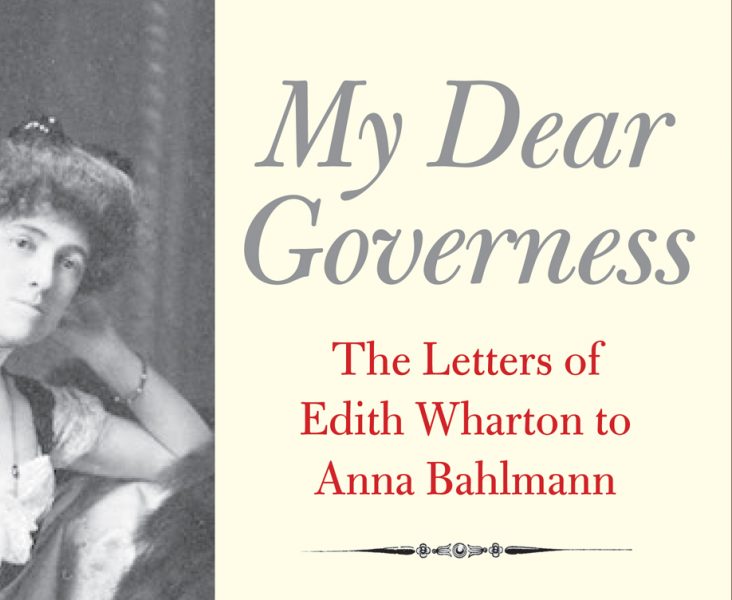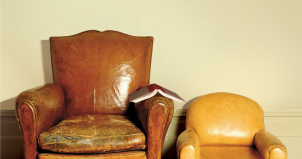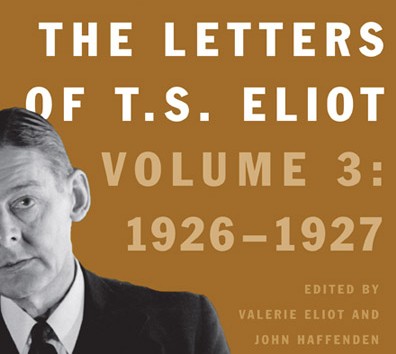For the Devoted Teacher
 When Anna Catherine Bahlmann was twenty-four years old, a young girl named Edith Jones became her newest student. Bahlmann constantly had to add more folklore and poetry to the German curriculum to satisfy Jones’ ever-expanding curiosity. Sensing the girl’s potential, Bahlmann carefully preserved the early letters exchanged between the two of them. These letters now form the basis of Irene Goldman-Price’s revealing collection in My Dear Governess: The Letters of Edith Wharton to Anna Bahlmann. Written over the course of forty-two years, the letters are particularly important for scholarship on Wharton today, as few primary sources on the famed author’s life were previously known to exist. Before My Dear Governess, only three letters from Wharton’s childhood and early adulthood were thought to survive; now, we have 135.
When Anna Catherine Bahlmann was twenty-four years old, a young girl named Edith Jones became her newest student. Bahlmann constantly had to add more folklore and poetry to the German curriculum to satisfy Jones’ ever-expanding curiosity. Sensing the girl’s potential, Bahlmann carefully preserved the early letters exchanged between the two of them. These letters now form the basis of Irene Goldman-Price’s revealing collection in My Dear Governess: The Letters of Edith Wharton to Anna Bahlmann. Written over the course of forty-two years, the letters are particularly important for scholarship on Wharton today, as few primary sources on the famed author’s life were previously known to exist. Before My Dear Governess, only three letters from Wharton’s childhood and early adulthood were thought to survive; now, we have 135.
While there is certainly much to be learned about the trajectory of Wharton’s ideas and attitudes throughout the years, readers are also offered a portrait of her little-known governess. In the opening paragraphs, Goldman-Price explains the scant mention of Bahlmann in Wharton scholarship: “As a matter of propriety, Bahlmann stayed in the background of Wharton’s life, a comfortable position suited both to her reserved personality and to her recognition of her place as part of the Wharton household rather than as friend of social peer.” The “paucity of commentary about Bahlmann” can also be explained by Wharton’s “failure to make much mention of Bahlmann in her memoir, A Backward Glance, reflect[ing] the social dynamic of their positions.”
Indeed, Wharton grew increasingly distanced from her governess as the years passed. While she once confided her deepest thoughts in Bahlmann, her later letters saw her writing with diminshed care. Goldman-Price portrays her as one who adamantly refused to wear her heart on her sleeve, “Wharton had grown into the woman of her long-ago poetry, a woman who kept her passions to herself and showed a cool face to the world.”
An NPR interview with Goldman-Price illustrates one telling example of Wharton’s reticence toward her governess: during her time in Paris, Wharton met Morton Fullerton, a young journalist with whom she ended up falling passionately in love. While the letters that she wrote to him were expressively filled with tormented longing, those that she sent to Bahlmann barely made any mention of the entire affair.
My Dear Governess provides readers with a compelling account of an utterly devoted governess whose work, Goldman-Price suggests, “enabled Edith Wharton to do her own.” Goldman-Price paints a picture of a teacher’s unwavering commitment to a sometimes thankless task: “When Edith was a child, hungry for words and images and ideas, Anna fed her […] Anna was a rare visitor in Edith’s secret garden of the imagination who watered the fruits and flowers until others with more talent and influence—editors, friends, writers—could assist with the harvest.” And even if “Edith’s investment in Anna was not as deep as Anna’s in her,” Goldman-Price concludes in her introduction to the letters, “we must not fail to understand that Anna’s in Edith was complete. As she once told Edith’s friend Mary Berenson: “For years the only object I have had in life has been to help Edith and spare her trouble and fatigue.” This she did, always.”


























